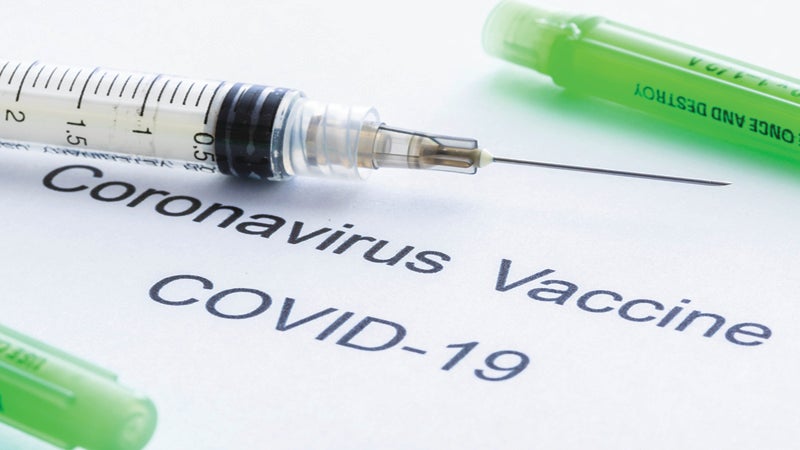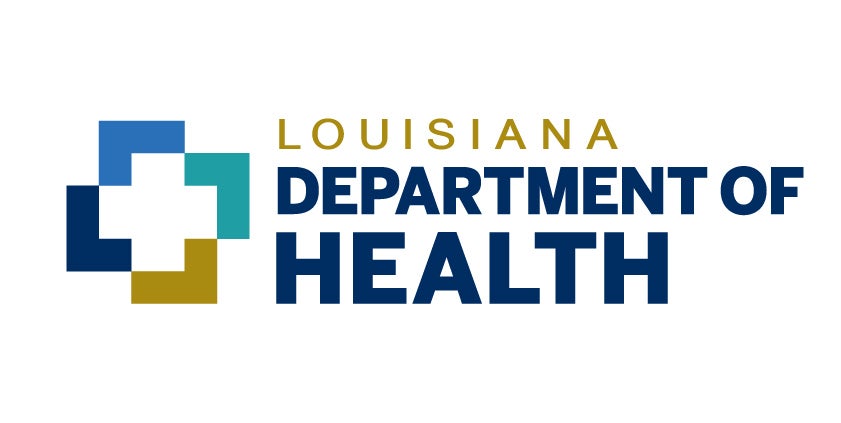Social Activity, Aging Education Critical to Brain Health in Older African Americans, Pennington Biomedical Study Finds
Published 9:00 am Sunday, February 5, 2023
|
Getting your Trinity Audio player ready...
|
BATON ROUGE – Among its many benefits to our overall health and well-being, exercise strengthens the brain and helps defend against cognitive decline. However, the results of a recent clinical trial revealed another activity that may benefit the brain more than exercise alone: social engagement and education around healthy aging.
A BrightFocus Alzheimer’s Disease Research-funded research team at Pennington Biomedical Research Center in Baton Rouge aimed to deepen the understanding of the benefits of exercise in protecting brain health specifically among African Americans aged 65 and older.
Grant recipients Dr. Robert L. Newton Jr. and Dr. Owen Carmichael believed that by determining ways to encourage older African American adults to exercise more, they might be able to improve their cognition (i.e., thinking) and prevent cognitive loss as they age.
African Americans are twice as likely to develop Alzheimer’s disease or other dementias as white individuals and are underrepresented in health and aging research overall. Despite their disproportionate risk, little is known about effective interventions to prevent dementia and cognitive decline in African American populations.
“Very few studies to date have specifically developed a physical activity intervention for older African Americans,” the researchers wrote.
To address these needs, Drs. Newton and Carmichael designed and conducted a pilot clinical trial to evaluate the effectiveness of exercise and other interventions for protecting against cognitive decline in healthy older African Americans. Results from the trial, called the Program for African American Cognition and Exercise, or PAACE, were published in Frontiers in Aging Neuroscience.
About the study
Drs. Newton and Carmichael developed the program by gathering information directly from older African Americans about the types of physical activities and program components (e.g. length of time) that would be acceptable to an older African American population. The researchers combined this input with previously gathered information about their beliefs about dementia, assessments they were willing to undergo, and their willingness to participate in different kinds of lifestyle interventions, to create the exercise program.
A total of 56 healthy African American men and women, aged 65-85 years, participated in the 12-week trial. Half were assigned to an exercise program targeting 150 minutes per week of moderate to vigorous aerobic exercise. Participants engaged in 45- to 60-minute group exercise sessions two days per week consisting of aerobic exercise (e.g. walking, line dancing), strength, balance, and flexibility training at the local YMCA. These participants also exercised at home two to four days per week.
The other half were assigned to a successful aging group, where they attended weekly 30–60-minute group sessions. Seventy percent of the time was devoted to education and the remaining 30 percent was group discussion. Topics included healthy eating, living wills, and dementia awareness.
Standard testing was performed before and after the trial to determine if there was any effect on cognition in the exercise program group vs. the education program group.
The findings
Which group showed greater improvements in cognition? The results of this pilot trial showed that the exercise program did not improve cognitive function. The education program did.
At the end of 12 weeks, participants in the exercise program group showed no evidence of improved cognitive functioning as measured by standard cognitive testing, whereas cognition scores rose significantly in the education program group.
The paper provided potential explanations for these results. It may be that the intensity or dose of physical activity in the exercise program group was insufficient to improve cognitive function.
Despite that, there still may have been benefits to the exercise program group, the authors speculate. For example, members of the exercise program group increased their moderate-to-vigorous physical activity by an average of 45 minutes per person per week, a level that could have benefits for heart health and lowered risk of diabetes—Alzheimer’s risk factors that are more prevalent in African Americans than whites.
The authors also speculated that the education program group may have acted on information related to improving lifestyle behaviors, such as diet and sleep, which could have improved cognitive function. They also may have benefited from social engagement during the group discussions. Small changes to each of these behaviors are unlikely to impact cognition; however, in other studies, multiple changes across several behaviors (e.g., diet, physical activity, social engagement, sleep) have been shown to improve cognitive function, the authors noted.
Women in the education program group showed the highest level of cognitive benefits among study participants. This aligns with other evidence showing that social engagement and support are important contributors to women’s health.
The results can help guide future research. For example, the authors suggest exploring whether simultaneous modification of multiple lifestyle behaviors enhances cognitive outcomes among older African Americans—an approach to reducing Alzheimer’s disease risk that has not, for the most part, been targeted to this population.
Follow-up research should focus on improving the effectiveness of the exercise program, investigating what components made the education program effective, and exploring why women seemed to benefit the most, the authors suggested.
It may be possible to address the exercise effectiveness question in new trials that Drs. Newton and Carmichael have started with nearly $2 million in federal funding from the National Institute on Aging. Now recruiting, the Reducing African Americans’ Alzheimer’s Disease Risk Through Exercise, or RAATE, trials are similar to PAACE but larger, longer in duration, and include people with mild cognitive impairment. Participants are randomized into a physical activity promotion intervention or a healthy aging information group. The primary objective is to compare the effects of both interventions on cognition (memory and executive function).
Studies indicate that maintaining social connections and staying mentally active as we age may lower the risk of cognitive decline and dementia, possibly due to the strengthening of connections between nerve cells in the brain. As the researchers point out, more research is needed into the effects of exercise and other interventions on cognitive outcomes in African Americans and people from underrepresented groups. The best bet may be to design trials that combine vigorous physical activity with socially engaging activities.
“Important and exciting research like this exemplify the discoveries that are happening at Pennington Biomedical,” said Dr. John Kirwan, executive director of the Pennington Biomedical Research Center. “As we learn more about ailments like Alzheimer’s disease and dementia, this type of research study could go a long way in helping to find ways to improve cognition and ensure healthy aging in our elderly populations. The work being done by Dr. Newton and Dr. Carmichael is a vital piece of the puzzle to helping solve these types of chronic diseases, and we thank the BrightFocus Foundation for their partnership.”
Alzheimer’s Disease Research, a program of BrightFocus Foundation, has an active grant portfolio of more than $45 million across 167 scientific research grants to defeat Alzheimer’s. One current ADR-funded project is examining the impact of the exercise hormone irisin on astrocytes in Alzheimer’s disease, which could lead to new therapeutic designs that mimic the beneficial effects of exercise; another is examining the impact of diet and exercise on the brain and how the APOE gene further influences this relationship.
BrightFocus Foundation reaches millions of people worldwide through its public outreach and education efforts around brain and eye health. In 2021, BrightFocus launched Brain Info Live, a community outreach series that addresses health disparities and equity for people living with Alzheimer’s. Through this and other programs including BrightFocus Chats and Community Circle, BrightFocus works to build trust and support among community members, families, clinicians, researchers, and other health professionals.
About the Pennington Biomedical Research Center
The Pennington Biomedical Research Center is at the forefront of medical discovery as it relates to understanding the triggers of obesity, diabetes, cardiovascular disease, cancer and dementia. The Center architected the national “Obecity, USA” awareness and advocacy campaign to help solve the obesity epidemic by 2040. The Center conducts basic, clinical, and population research, and is affiliated with LSU.
The research enterprise at Pennington Biomedical includes over 480 employees within a network of 40 clinics and research laboratories, and 13 highly specialized core service facilities. Its scientists and physician/scientists are supported by research trainees, lab technicians, nurses, dietitians, and other support personnel. Pennington Biomedical a state-of-the-art research facility on a 222-acre campus in Baton Rouge.
For more information, see www.pbrc.edu.
About BrightFocus Foundation
BrightFocus Foundation is a premier nonprofit funder of research to defeat Alzheimer’s, macular degeneration, and glaucoma. Through its flagship research programs—Alzheimer’s Disease Research, National Glaucoma Research, and Macular Degeneration Research—the Foundation is currently supporting a $75 million portfolio of 287 scientific projects worldwide. BrightFocus has awarded nearly $275 million in groundbreaking medical research funding since inception and shares the latest research findings, expert information, and English/Spanish disease resources to empower the millions impacted by these devastating diseases. Join our community at brightfocus.org.





